Sin taxes, public health and public opinion (part two)
SUGGESTED



Financial incentives
From time to time, it is suggested that smokers, heavy drinkers and the obese be offered financial incentives to lead healthier lifestyles. Some NHS trusts have already trialled schemes in which smokers are paid to stop smoking and obese people are paid to lose weight.
Our survey found little support for taxpayers’ money being used in this way. The results were consistent in finding around 60 per cent of respondents opposed to the government paying people to lose weight (Figure 12), stop smoking (Figure 13) or stop drinking excessively (Figure 14). Of those who expressed an opinion, opponents of such policies outnumbered supporters by more than 2 to 1.
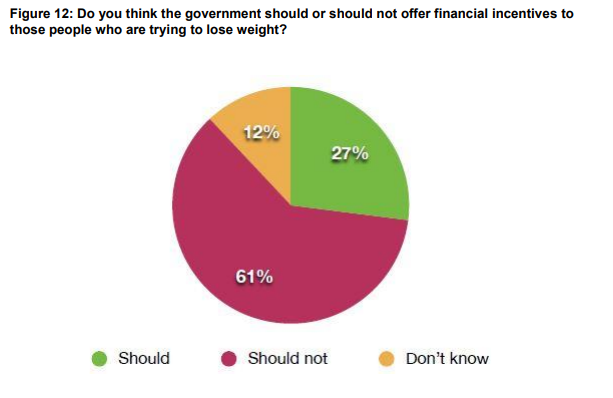
 Figure 12: Do you think the government should or should not offer financial incentives to those people who are trying to lose weight?
Figure 12: Do you think the government should or should not offer financial incentives to those people who are trying to lose weight?
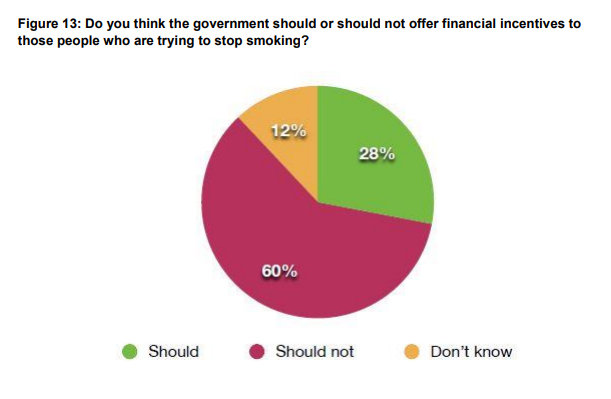
Figure 13: Do you think the government should or should not offer financial incentives to those people who are trying to stop smoking?
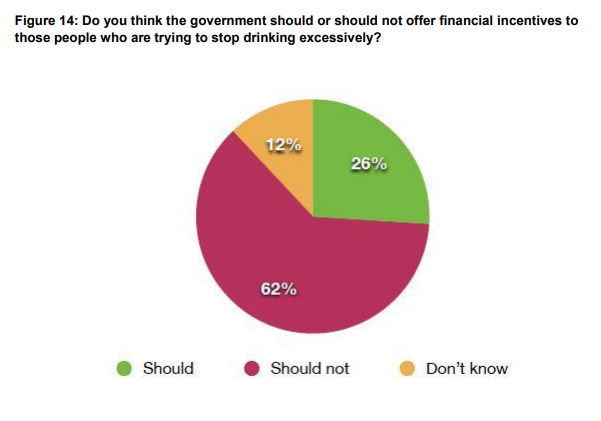 Figure 14: Do you think the government should or should not offer financial incentives to those people who are trying to stop drinking excessively?
Figure 14: Do you think the government should or should not offer financial incentives to those people who are trying to stop drinking excessively?Health warnings
The British public seem to be less resistant to the use of health warnings than they are to ‘sin taxes’. Tobacco products have had mandatory health warnings since the 1960s. These warnings have become larger and more explicit in the years since and, in 2008, incorporated ‘graphic’ photographs. Although it is not a legal requirement, the packaging for most alcoholic beverages includes advice about government drinking guidelines and a pictorial warning against pregnant women drinking.
Some organisations, such as the British Medical Association, would like to see stronger warnings on alcoholic beverages, including the kind of graphic warnings that appear on tobacco products. Others would like to see some form of health warning on ‘unhealthy’ food products.
Our survey found a surprisingly large amount of support for these suggestions. Although we did not specify what kind of warnings might be used, 72 per cent of respondents supported mandatory health warnings on food and drinks which are high in sugar, fat and salt (Figure 15). A smaller number, but still a majority (54 per cent) supported the use of images such as diseased livers on alcohol packaging (Figure 16).
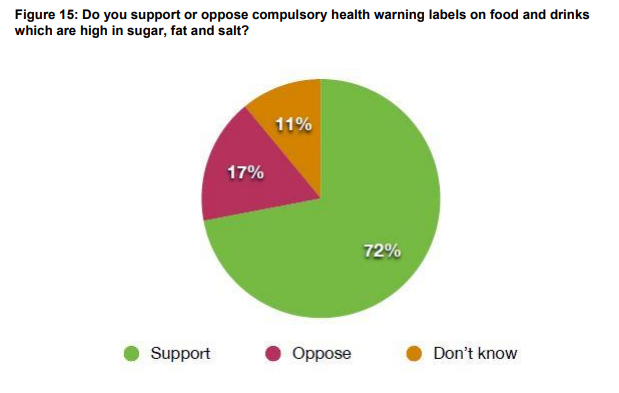 Figure 15: Do you support or oppose compulsory health warning labels on food and drinks which are high in sugar, fat and salt?
Figure 15: Do you support or oppose compulsory health warning labels on food and drinks which are high in sugar, fat and salt?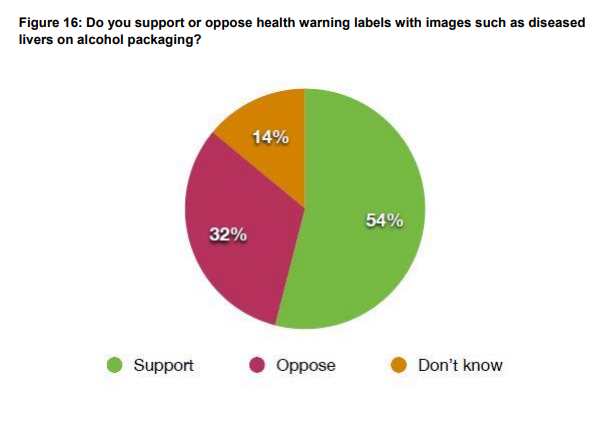 Figure 16: Do you support or oppose health warning labels with images such as diseased livers on alcohol packaging?
Figure 16: Do you support or oppose health warning labels with images such as diseased livers on alcohol packaging?The smoking ban
By July 2007, the whole of the United Kingdom was covered by one of the world’s most extensive smoking bans. Smoking is against the law in all pubs, restaurants, offices and private members’ clubs without exception. Anti-smoking groups claim that there is widespread support for this legislation, but the surveys they commission limit respondents’ choice to two options: having the ban as it exists or having no ban whatsoever. On the other hand, surveys conducted by Populus and the Office for National Statistics, which have given respondents a broader range of options, found that ‘mainly non-smoking pubs with smoking areas’ is the most popular choice. As Anthony Wells of YouGov explained in 2005:
‘The simple picture is this – if you conduct polls that ask a straight yes or no question about whether people would approve of a complete smoking ban in pubs, about two-thirds say yes. If, on the other hand, you ask people what they would like done about smoking in pubs, and give them a list of options such as a complete ban, or making all pubs have a no-smoking area, or better ventilation or so on, then most people opt for making pubs have no smoking sections (or making pubs no smoking with special smoking sections, which amounts to much the same thing) and against having an overall ban’.
Wells was writing before the smoking ban was implemented but our survey shows that his observation still holds. Our survey asked the public if they were in favour of allowing pubs and private members club to have a private room for smokers if the proprietor wished to create one. A majority of respondents approved of this idea with only 35 per cent opposed (Figure 17).
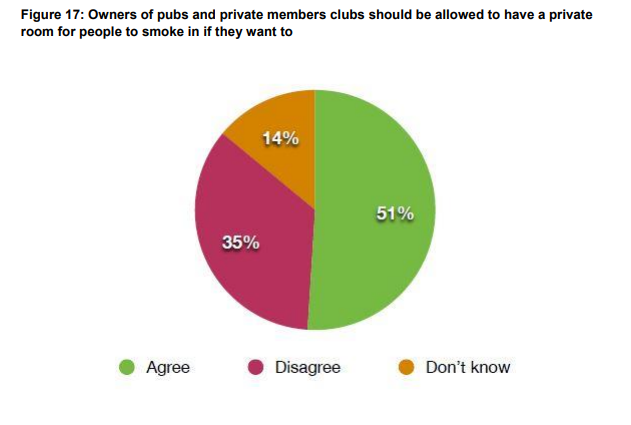
Figure 17: Owners of pubs and private members clubs should be allowed to have a private room for people to smoke in if they want to
Go to part three.
Download the full survey results here.
2 thoughts on “Sin taxes, public health and public opinion (part two)”
Comments are closed.





When I originally commented I clicked the “Notify me when new comments are added” checkbox and now each time a
comment is added I get three e-mails with the
same comment. Is there any way you can remove people from that service?
Thanks a lot!
Wilfredo – I have no influence on that, but there should be a link at the bottom of the notification e-mails you receive, via which you can unsubscribe.